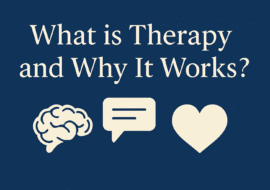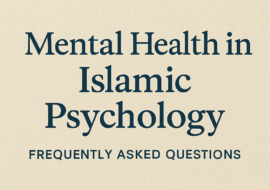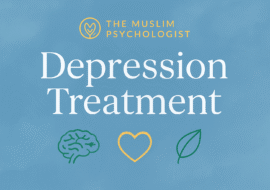
Am I the Only One Struggling with Mental Health Issues?
Am I the Only One Struggling with Mental Health Issues?
Mental health struggles can often make us feel isolated, as though we’re the only ones grappling with emotions like anxiety, sadness, or overwhelming stress. This feeling of isolation can be particularly challenging, and it’s common for people to wonder, “Am I the only one experiencing this?”
In reality, mental health challenges are far more common than many realize. Whether you’re struggling with anxiety, depression, trauma, or stress, know that you are not alone. Millions of people around the world face similar challenges, and mental health issues are not a reflection of weakness or failure.
1. The Cognitive Bias: “Am I the Only One?”
Feeling like you are the only one struggling with mental health issues is a cognitive bias known as “emotional reasoning” or “catastrophizing”. This bias involves the tendency to assume that because you feel a certain way, it must be true. In this case, because you feel isolated or overwhelmed, you might believe that everyone else is coping better or that you are the only one experiencing these emotions.
Emotional Reasoning
This cognitive distortion happens when individuals believe that their emotional experience reflects objective reality. For instance, if someone is struggling with depression, they might feel like no one else is going through the same thing, even though others may be silently dealing with similar issues.
Catastrophizing
Another form of cognitive bias involved in this thought process is catastrophizing, where individuals blow their challenges out of proportion. This might lead someone to think that their mental health struggles are an overwhelming burden, unique to them, and insurmountable. In reality, these struggles are shared by many people, even though they may not always be visible.
By recognizing these biases, we can start to challenge the distorted belief that we are alone in our experiences. It’s important to remind ourselves that mental health issues are common, and many people—though they may not always show it—are facing similar battles.
2. Mental Health is Part of Being Human
Human beings experience a wide range of emotions, from joy and excitement to sadness and fear. Mental health issues like anxiety and depression are just another aspect of the human experience. The truth is, we all face challenges that affect our emotional well-being at some point in our lives, and that is okay.
According to the World Health Organization (WHO), one in four people will experience mental health problems at some point in their lives. So, no—you are not alone in this.
3. Struggles Experienced by Prophets and Companions
In Islam, we are reminded that even the Prophets—the most esteemed and chosen individuals in our faith—experienced moments of emotional distress. These struggles are important because they show us that even the greatest of humans faced challenges and persevered with faith.
- Prophet Muhammad (ﷺ): Despite being the final messenger, Prophet Muhammad (ﷺ) faced tremendous challenges, including the loss of his beloved wife Khadijah and his uncle Abu Talib, both of whom were pillars of support. These losses deeply affected him, and in these moments of grief, he sought solace and guidance from Allah. His experiences remind us that grief, loss, and emotional pain are natural parts of life, even for the best of people.
- Prophet Ya’qub (AS): Prophet Ya’qub (AS) experienced immense grief after the loss of his son Yusuf (AS). He cried so much that his vision was affected, and people feared he might lose his sight. This story is a powerful reminder that grief is natural and that even the strongest individuals can experience emotional suffering.
- Prophet Yusuf (AS): Prophet Yusuf (AS) was betrayed by his brothers, thrown into a well, and later imprisoned. His trials were deep, but through it all, he never lost hope in Allah. Yusuf (AS) teaches us that even in times of despair, faith and patience can guide us through.
- Companion Umar ibn Al-Khattab (RA): One of the most prominent companions of the Prophet (ﷺ), Umar ibn Al-Khattab (RA), also faced personal emotional struggles. He was once filled with regret and sorrow over past mistakes, yet he continually sought redemption and improvement. His struggles show us that no one is immune to emotional challenges, but with repentance and seeking Allah’s forgiveness, we can overcome them.
These examples from the lives of the Prophets and Companions remind us that emotional distress is not a sign of weakness, but rather a natural human experience. Their resilience and trust in Allah during difficult times offer guidance for anyone dealing with mental health challenges.
4. The Stigma: Why We Feel Like We’re Alone
Despite growing awareness of mental health, stigma still surrounds it, especially in certain cultural and religious communities. People may feel that having mental health issues means they are “weak” or “not strong enough in their faith.” But this could not be further from the truth. Struggling with mental health is not a sign of weakness or a reflection of your faith or character.
In Islam, seeking help is encouraged, and there is no shame in reaching out for support. Just as we would seek medical help for physical ailments, seeking psychological support for emotional distress is equally important.
5. Seeking Help is a Strength, Not a Weakness
The first step to healing is realizing that it’s okay to ask for help. Many people feel embarrassed or ashamed to seek support, but reaching out is one of the most courageous and important things you can do for your well-being.
Therapy, whether through traditional counseling or faith-based approaches, can provide you with the support you need. Islam encourages seeking knowledge and solutions, and just as we seek medical help for physical ailments, mental health support is equally important.
6. You Are Not Alone in This Journey
It’s important to remember that there is always support available. Talk to someone you trust—a friend, family member, or professional. Support groups and community resources are also excellent ways to connect with others facing similar challenges.
In Islam, community (ummah) plays a critical role in providing emotional and spiritual support. If you are feeling alone in your struggles, reach out to a trusted friend, mentor, or spiritual advisor. You are part of a much larger support system than you may realize.
7. Conclusion: Healing is Possible
If you’re struggling with mental health issues, remember that you are not alone. Many people experience emotional pain, and healing is possible. Seek support, practice self-compassion, and trust that you will get through this. The first step is to recognize that asking for help is a strength, not a weakness.
“Indeed, with hardship comes ease.” (Quran 94:6)
This verse serves as a reminder that challenges, no matter how difficult, will eventually pass. Healing is a journey, and you don’t have to walk it alone





Write a Comment